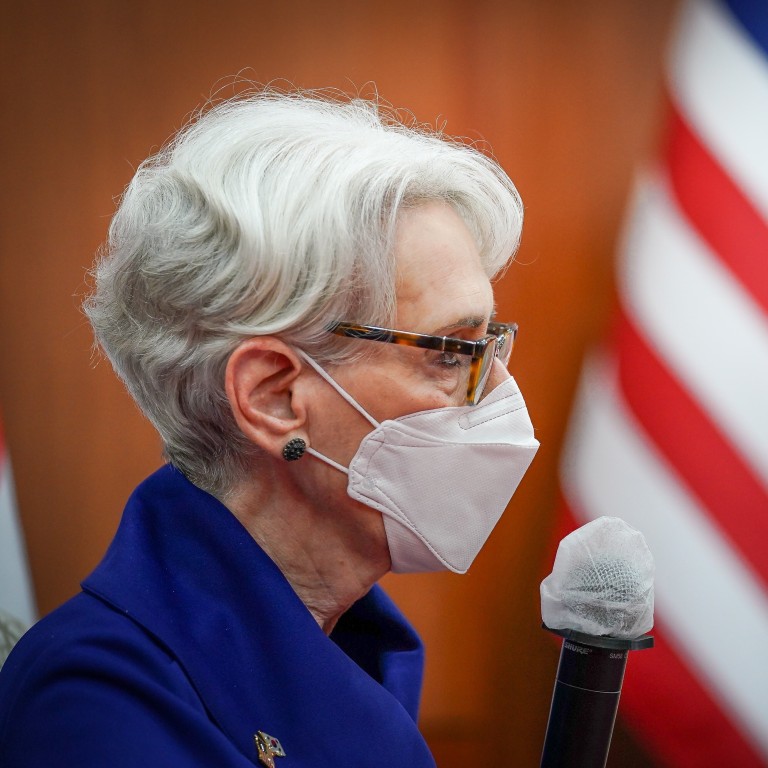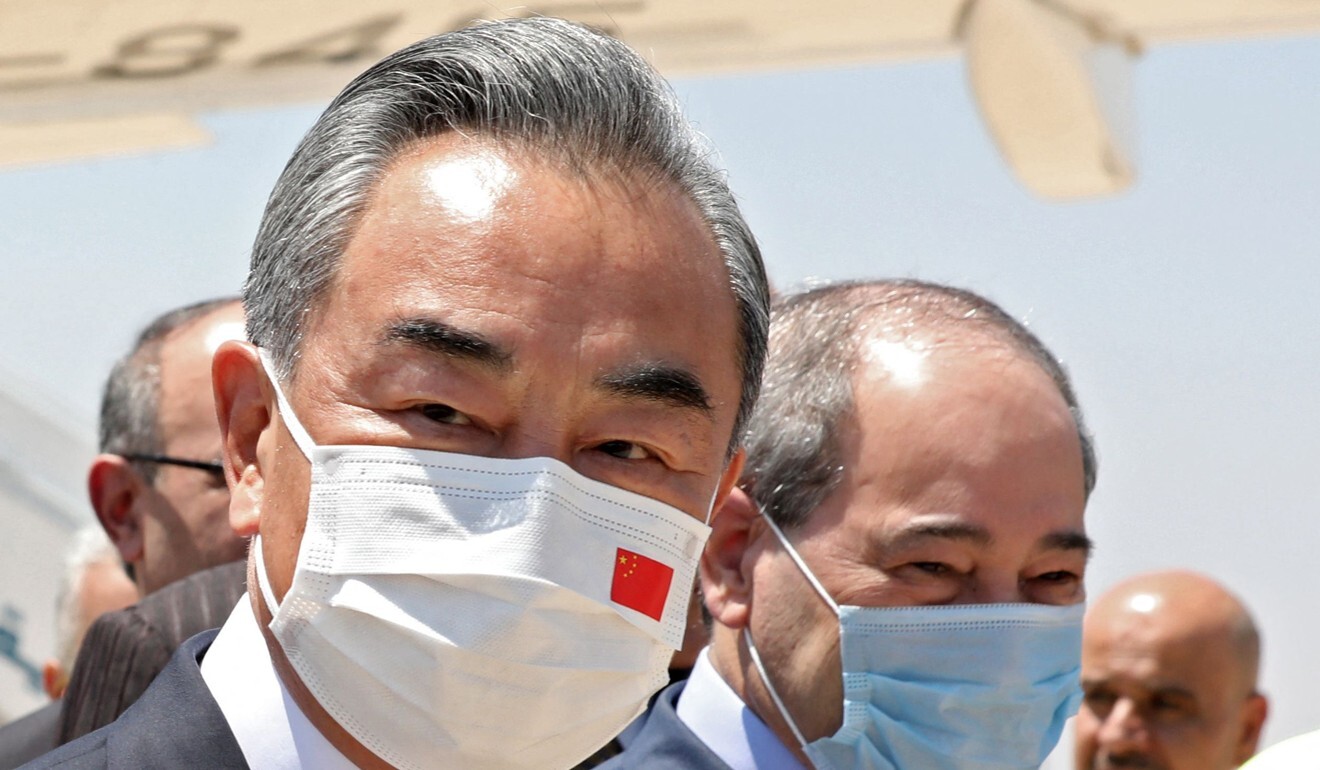
In upcoming talks, US diplomat Wendy Sherman to seek ‘guardrails’ with China to manage competition and avoid conflict
- US sees the meetings in Tianjin as an opportunity to set parameters for the relationship at large
- ‘Stiff and sustained competition’ is embraced as long as playing field is even, US officials say
The United States views upcoming high-level meetings between American and Chinese diplomats as an opportunity to prevent growing bilateral tensions devolving into misunderstandings and even conflict, senior US officials said on Saturday.
Following visits to allies in East Asia, US deputy secretary of state Wendy Sherman will arrive in Tianjin on Sunday for talks with Chinese Foreign Minister Wang Yi and foreign vice-minister Xie Feng.
Sherman plans to tell her counterparts that the US welcomes “stiff and sustained competition” with China, but that “everyone needs to play by the same rules and on a level playing field”, a senior administration official told reporters during a background briefing.

“She’s going to underscore that we do not want that stiff and sustained competition to veer into conflict,” the official continued. “This is why the US wants to ensure that there are guardrails and parameters in place to responsibly manage the relationship.”
The highest-ranking Biden administration official to visit China, Sherman arrives in the country amid soaring tensions, stoked recently by mutual accusations of cyberattacks, tit-for-tat sanctions and increasing efforts by Washington to rally partners to confront Beijing.
Why Tianjin? And what’s in store in China for US envoy Wendy Sherman?
In recent days, the Biden administration has hit Chinese officials posted in Hong Kong with sanctions, issued a warning to US companies operating in Hong Kong about the city’s deteriorating autonomy, and – with allies – accused Beijing of sponsoring a massive cyber intrusion of Microsoft servers earlier this year.
Striking back, Beijing this week accused the Central Intelligence Agency of carrying a years-long cyber offensive against Chinese entities, and on Friday issued sanctions against a US non-governmental organisation and multiple Americans, including former commerce secretary Wilbur Ross.
The back-and-forth sanctions are likely to loom large over the talks, in which “all dimensions of the relationship will be on the table”, said the official.
“Frank and open discussion, even – perhaps especially – where we disagree, is critical to reducing the potential for misunderstandings between our countries, maintaining global peace and security, and making progress on important issues,” said the official.
A second official said the goal was not to “negotiate over specifics”, but rather to maintain open lines of communication at the senior level.
The officials, who were travelling with Sherman, did not elaborate on which particular hotspots in the relationship could be complicated by misunderstandings or devolve into conflict. But the comments come amid intensifying military provocations by Beijing around Taiwan, and ongoing territorial disputes in the South China Sea.

As Sherman heads to China, US Secretary of Defence Lloyd Austin is en route to Southeast Asia for meetings in Singapore, Vietnam and the Philippines. While there, Austin plans to address the “unhelpful and unfounded claims by China in the South China Sea”, he told reporters this week.
Austin also plans to explore ways the US and its Indo-Pacific allies can work together “to tackle some changing forms of aggression and coercion that we’re all seeing”, he said.
Tianjin talks a chance for China and US to ‘show their hands’, experts say
“If [Beijing is] going to resolve some of these problems that affect all of their citizens, they’re going to have to join global movements,” said one of the officials.
During her meetings, Sherman is expected to express her condolences for those killed in this week’s floods and concern for those still unaccounted for, they said.

